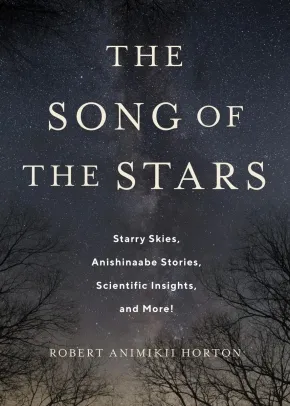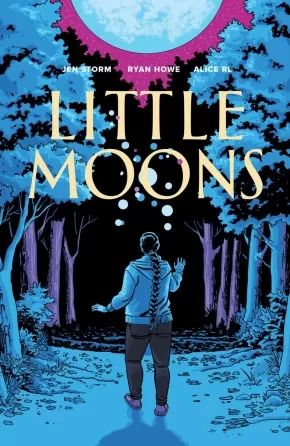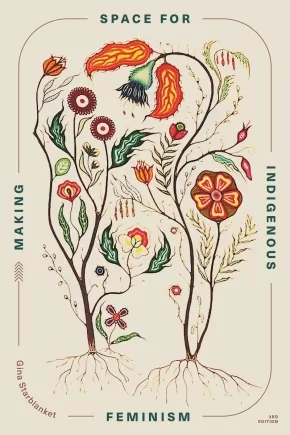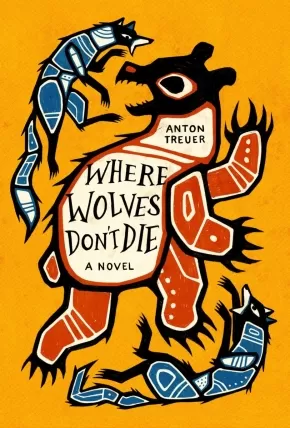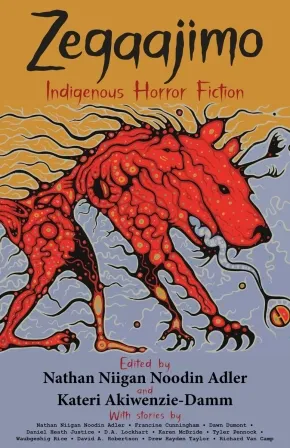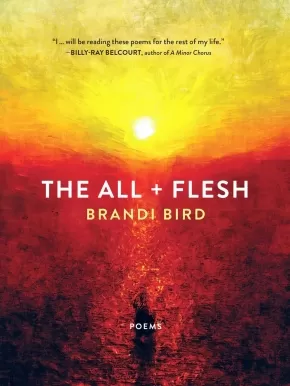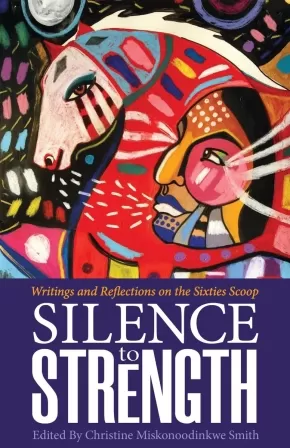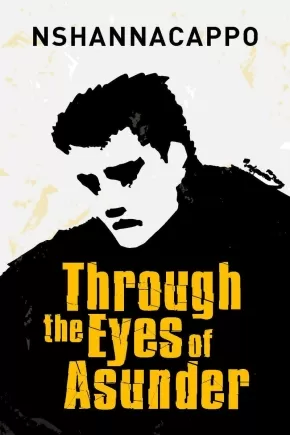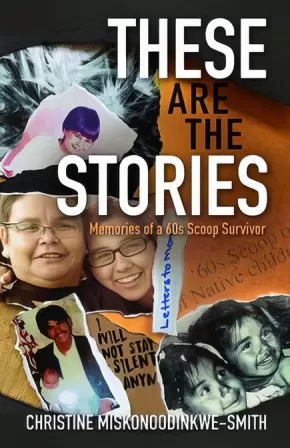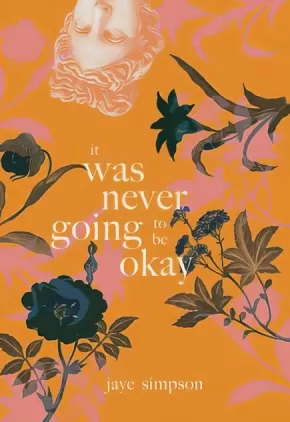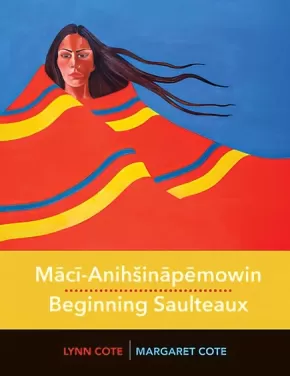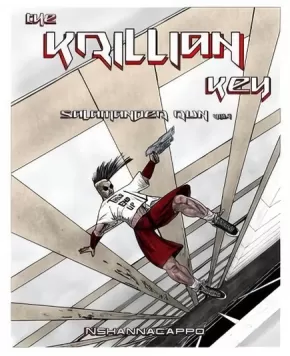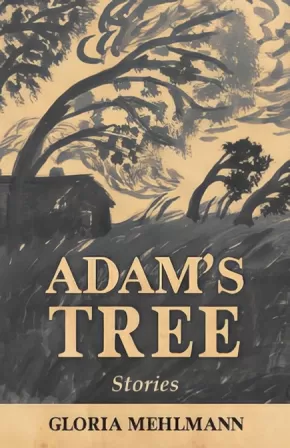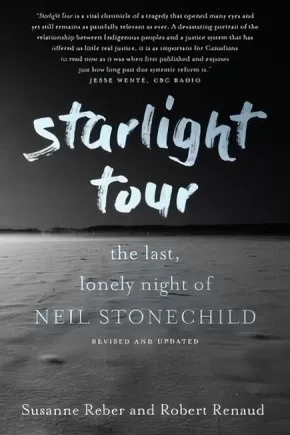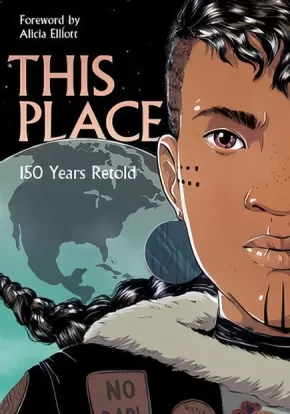
Saulteaux
1
-
15
of
23 Results;
Sort By
Go To
of 2
The Song of the Stars: Starry Skies, Anishinaabe Stories, Scientific Insights, and More!
$29.95
Format:
Hardcover
Text Content Territories:
Indigenous Canadian; First Nations; Anishinaabeg;
Reading Level: N/A
ISBN / Barcode: 9781487564155
Synopsis:
Synopsis:
Since the earliest days of human memory, countless generations have turned their eyes to the skies in wonder, drawing patterns, understanding the stars’ connection to cycles and events, and carrying their stories and teachings forward to subsequent generations.
The Song of the Stars offers a unique journey through the skies, linking us to generations of ancestors who marvelled at the same stars we still gaze upon today. The book brings together Anishinaabe cultural teachings about the cosmos and the Anishinaabemowin language with scientific insights to demonstrate how both viewpoints can help us foster deeper and more meaningful relationships to the Earth and the cosmos. Robert Animikii Horton, Anishinaabemowin educator, proves that this dual perspective can be a source of awe and wonder, inspiring in us a love of both language and science.
Demonstrating how Anishinaabe cultural teachings and scientific insights can complement one another and need not be irreconcilable opposites, The Song of the Stars provides a combination of perspectives that cultivates a deeper understanding of the vast mystery surrounding our place in the universe.
Educator Information
Contents
1. In Awe of the Awe-Inspiring
2. Aki: The Earth
3. Giizis: The Sun
4. Gichi-giizis: The Solar Eclipse
5. Naawakwe: Solar Noon
6. Ma’iingan Omiikana: The Sun’s Ecliptic
7. Aadwaa’amoog: Orion’s Belt
8. Waawaate: The Northern Lights (Aurora Borealis)
9. Jiibay Miikana: The Milky Way
10. Gookomisinaan Dibiki-giizis: The Moon
11. Gaagige-giizhig: The Universe
12. Anang: Star
13. Ojiig Anang: Fisher Star
14. Ojiig: The Big Dipper
15. Gichi-Ogimaa Anang: Vega
16. Gaa-bibooniked: The Wintermaker
17. Maang: The Little Dipper
18. Bagonegiizhig: The Pleiades
19. Moonz: Pegasus
20. Onwaajige Anang: Halley’s Comet
21. Madoodiswan: Corona Borealis
22. Ma’iingan: Canis Major
23. Nanaboozhoo: Scorpius
24. Waaban Anang: The Morning Star
25. Biidaaban, Waaban, Zaagajiwens, & Mooka’am: The Process of Sunrise
26. Mishibizhiw: Leo, Cancer, and Hydra
27. Gaa-madoodood: Hercules
28. Bangishin Anang: Falling Star
29. Binesi: Cygnus
30. Mishiginebig: Draco
31. Ikwe Anang: Venus
32. Directions and More
Additional Information
120 pages | 6.00" x 9.00" | Hardcover
Little Moons
$22.95
Artists:
Format:
Paperback
Text Content Territories:
Indigenous Canadian; First Nations; Anishinaabeg; Ojibway;
ISBN / Barcode: 9781774921074
Synopsis:
Synopsis:
In this moving graphic novel, thirteen-year-old Reanna grieves the loss of her older sister. Can she find comfort through her family’s Ojibwe traditions?
It’s been a year since Reanna’s sister, Chelsea, went missing on her way home from school. Without any idea of what happened, Reanna and her family struggle to find closure.
Driven from their home by memories, Reanna’s mom moves to the big city. Left behind on the reserve, Reanna and her little brother go to live with their dad.
Reanna is hurt and angry that her mom has run away. She feels lonely, abandoned… but she is not alone. Lights turn on in empty rooms, and objects move without being touched.
There are little moons everywhere.
Reviews
"Little Moons has all the hallmarks of becoming a cherished companion for young hearts navigating the turbulent waters of grief and loss. This graphic novel not only offers solace but also illuminates the path toward healing. Little Moons gently guides readers through the darkest of nights, reminding them that even in moments of profound sadness, there is still light to be found."—Tasha Spillett, New York Times bestselling author
Educator Information
Recommended for ages 12 to 18.
Subjects, Themes, and Big Ideas: Death, Grief, Siblings, Paranormal, Graphic Novels, Socail Justice, MMIWG2S, Prejudice and Racism, Social Emotional Learning, Aspects of Indigenous Cultures, Smudging, Powwow, Spirituality and Ceremony, Regalia, Traditional Art, Contemporary Setting, Strong Female Characters.
Fountas & Pinnell Z+
Additional Information
64 pages | 6.50" x 10.00" | Paperback
Making Space for Indigenous Feminism - 3rd Edition
$40.00
Format:
Paperback
Text Content Territories:
Indigenous Canadian;
Grade Levels: 12; University/College;
ISBN / Barcode: 9781773635507
Synopsis:
Synopsis:
The third edition of this iconic collection features Indigenous feminist voices from across generations and locations, including many exciting new contributors.
The third edition of the iconic collection Making Space for Indigenous Feminism features feminist, queer and two-spirit voices from across generations and locations.
Feminism has much to offer Indigenous women, and all Indigenous Peoples, in their struggles against oppression. Indigenous feminists in the first edition fought for feminism to be considered a valid and essential intellectual and activist position. The second edition animated Indigenous feminisms through real-world applications. This third edition, curated by award-wining scholar Gina Starblanket, reflects and celebrates Indigenous feminism’s intergenerational longevity through the changing landscape of anti-colonial struggle and theory. Diverse contributors examine Indigenous feminism’s ongoing relevance to contemporary contexts and debates, including queer and two-spirit approaches to decolonization, gendered and sexualized violence, storytelling and narrative, digital and land-based presence, Black and Indigenous relationalities and more. This book bridges generations of powerful Indigenous feminist thinking to demonstrate the movement’s cruciality for today.
Reviews
“This collection is all feast, no fluff. It covers foundational elements of Indigenous feminism with depth and breadth and engages issues of national and international importance with considerable insight. Due to its readability and smart use of theory, this book is eminently teachable. I haven't highlighted this much in a long time.”— Margaret Robinson, Canada Research Chair in Reconciliation, Gender, and Identity
“This volume offers a view of the development and expansion of Indigenous feminisms as theory and praxis, reaffirming the validity of our respective Indigenous epistemologies to guide us into the future.”— Jennifer Nez Denetdale (Diné), University of New Mexico
“Multiplying are the calls for transformative healing issued by Indigenous feminism which is, at its core, about Indigenous sovereignty, solidarity, and liberatory justice for all. The diverse and incisive essays in Making Space for Indigenous Feminism (3rd ed) expose ongoing cis-heteropatriarchal settler colonialism, anti-Indigenous racism, and the erasure of gender and sexual diversity (including by Indigenous people ourselves), and their impacts upon minds, bodies, lived experiences, and relationships. Resistance and hope abound in the re-centring of (queer) Indigenous feminist futurisms: world-building that honours the self-determination of Indigenous women, girls, Two-Spirit, and trans folks, and promotes wellbeing for all of Creation.”— Chantal Fiola, author and associate professor, University of Manitoba
“This third edition continues to fulfill the promise of the title to make space for feminist interventions in Canadian Indigenous studies. Each author is committed to relational ethics and transformative praxis in addressing the most pressing issues that create epistemic and material injustices. From the heart rendering an intimate state-of-the-field assessment from pillars in the field, the politics of gender, policy, and violence manifested in Canada currently, to its latter chapters that open up new spaces by continuing to press for just Indigenous futures, of which decentering binaries of gender and sexuality is necessary, we see the importance of Indigenous feminist theorizing and praxis. Confronting gendered violence, heterosexism, disciplinary regimes, and colonialism with honesty and truth telling, Making Space generously offers us new paths to materialize a decolonial world.”— Mishuana Goeman, author of Mark My Words and Settler Aesthetics: Visualizing the Spectacle of Originary Moments in The New World
“Making Space for Indigenous Feminism provides us with powerful voices emerging from and incorporating past, present, and future. Each chapter continues to make space for the power of Indigenous feminisms, as women, femme, Queer, LGBTQS+ and Mad think together in a powerful analysis of our now. This latest edition of a classic, newly edited by Gina Starblanket, includes Elders and youth and brings us back to why Indigenous feminisms are the embodied, lived and felt knowledges that will inform our struggles going forward.”— Dian Million, University of Washington, American IndianStudies
Educator Information
Table of Contents
Extending Our Accounts of Indigenous Feminism—Joyce Green and Gina Starblanket
Section I: Home | Identity | Legacies
- Always Coming Home: Indigenous Identity, Indigenous Feminism, Scholarship and Life—Joyce Green
- Why Am I a Feminist?—Emma LaRocque
- Settler Colonialism in Canada: Making “Indian” Women Disappear—Mary Eberts, Shelagh Day, Sharon McIvor
Section II: Institutions | Representation | Resistance
- Red Ticket Women: Revisiting the Political Contributions of the Indian Rights for Indian Women’s Movement—Gina Starblanket
- Perpetual State of Violence: An Indigenous Feminist Anti-Oppression Inquiry into Missing and Murdered Indigenous Women and Girls—Robyn Bourgeois
- Gender Reveals that Matter: Cis-Heteropatriarchy, Settler Colonialism, and Child Welfare—Megan Scribe
Section III: Land | Relationality | Love
- Towards an Anti-Colonial Feminist Care Ethic—Eva Jewell
- Our Movements Need some Love as Well: Indigenous Land Defense and Relationality—Isabel Altamirano-Jimenez
- Mana Wahine and Mothering at the Loʻi: A Two-Spirit/Queer Analysis—Hōkūlani K. Aikau
Section IV: Decoloniality | Movement | Futurities
- Decolonization is a Queer Desire: Poetics, Politics, Negativity—Billy-Ray Belcourt
- Mad Indigenous Womanhood and the Psycho-Politics of Settler Colonialism—Cara Peacock
- On Black and Indigenous Relationality: A Conversation—Gina Starblanket, Robyn Maynard, Leanne Betasamosake Simpson
- Decolonization is Also Metaphorical: Indigenous Feminist and Queer-Two-Spirit Storywork Matters—Kelly Aguirre
Additional Information
320 pages | 6.00" x 9.00" | Paperback
Where Wolves Don't Die: A Novel
$28.99
Format:
Hardcover
Text Content Territories:
Indigenous Canadian; First Nations; Anishinaabeg; Ojibway; Saulteaux; Nigigoonsiminikaaning First Nation;
ISBN / Barcode: 9781646143818
Synopsis:
Synopsis:
Ezra Cloud hates living in Northeast Minneapolis. His father is a professor of their language, Ojibwe, at a local college, so they have to be there. But Ezra hates the dirty, polluted snow around them. He hates being away from the rez at Nigigoonsiminikaaning First Nation. And he hates the local bully in his neighborhood, Matt Schroeder, who terrorizes Ezra and his friend Nora George.
Ezra gets into a terrible fight with Matt at school defending Nora, and that same night, Matt’s house burns down. Instantly, Ezra becomes a prime suspect. Knowing he won’t get a fair deal, and knowing his innocence, Ezra’s family sends him away to run traplines with his grandfather in a remote part of Canada, while the investigation is ongoing. But the Schroeders are looking for him…
From acclaimed author Anton Treuer comes a novel that’s both taut thriller and a raw, tender coming-of-age story, about one Ojibwe boy learning to love himself through the love of his family around him.
Reviews
“Where Wolves Don't Die will lift you up and not let you down. Anton Treuer knows how to tell a gripping story and the suspense doesn't let up for a single page. Along the way you'll learn about Ojibwe lifeways, languages, sharp jokes, gentle humor, and how to keep romantic love alive from youth to old age. I couldn't put this book down until I'd finished it, and then, I could not forget it.”—Louise Erdrich, Pulitzer Prize winner and owner of Birchbark Books
“I am in awe, crying and smiling at the same time. Where Wolves Don’t Die is a love letter to our Ancestors.”—Angeline Boulley
“Treuer immerses the reader in Ojibwe culture in this suspenseful novel of wilderness survival… An essential illumination of contemporary Indigenous life.”—Booklist
Educator Information
Recommended for ages 12 to 18.
Set in the Canadian wilderness, Where Wolves Don't Die is a thrilling YA coming-of-age novel that has garnered praise from Angeline Boulley, Booklist, and more. A suspenseful adventure tale for teens.
Additional Information
256 pages | 5.50" x 8.25" | Hardcover
Zegaajimo: Indigenous Horror Fiction
$28.00
Format:
Paperback
Text Content Territories:
Indigenous Canadian;
Reading Level: N/A
ISBN / Barcode: 9781928120445
Synopsis:
Synopsis:
A brand-new, spine-chilling collection of horror/thriller fiction, Zegaajimo, Anishinaabemowin for "to tell a scary story," includes stories from eleven leading First Nations and Metis authors from across the territories of Canada: Nathan Niigan Noodin Adler, Dawn Dumont, Daniel Heath Justice, D.A. Lockhart, Karen McBride, Tyler Pennock, Waubgeshig Rice, David A. Robertson, Drew Hayden Taylor, and Richard Van Camp.
Many of the stories draw on Traditional Stories. These stories of supernatural settings and deadful dees are more than speculative fiction, they are also reminders that monsters are already in our midst, that the known can be just as frightening as the unknown, and that the slightest mistakes can have dire consequences.
The collection is co-edited by Nathan Niigan Noodin Adler and Kateri Akiwenzie-Damm. Thrilling horror, Indigenous-style, perfect for Halloween!
Additional Information
230 pages | 5.50" x 8.50" | Paperback
The All + Flesh: Poems
$19.99
Format:
Paperback
Text Content Territories:
Indigenous Canadian; First Nations; Anishinaabeg; Ojibway; Saulteaux; Cree (Nehiyawak); Métis;
Reading Level: N/A
ISBN / Barcode: 9781487011826
Synopsis:
Synopsis:
Brandi Bird's frank, transcendent poetry explores the concepts of health, language, place, and memory in this long-anticipated debut collection.
Brandi Bird's long-anticipated debut poetry collection, The All + Flesh, explores the concepts of health, language, place, and memory that connect its author to their chosen kin, blood relatives, and ancestral lands. By examining kinship in broader contexts, these frank, transcendent poems expose binaries that exist inside those relationships, then inspect and tease them apart in the hope of moving toward decolonial future(s). Bird's work is highly concerned with how outer and inner landscapes move and change within the confines of the English language, particularly the "I" of the self, a tradition of movement that has been lost for many who don't speak their Indigenous languages or live on their homelands. By exploring the landscapes the poet does inhabit, both internally and externally, Bird's poems seek to delve into and reflect their cultural lineages-specifically Saulteaux, Cree, and Métis-and how these transformative identities shape the person they are today.
I am made of centuries & carbohydrates
the development of my molars
the hunger the teeth grew
has been with me since childhood
I can't escape the mouths of others
Awards
- 2024 Poetry in English, Indigenous Voices Awards
Reviews
"Since hearing Brandi Bird at a reading in a park in summertime recite the lines, "I know / then that there is hope / until I die & then / there is other / people's hope," I have thought about them many times, they have merged with my own consciousness. That's the power of Bird's poems-they resonate at such a visceral and cerebral level that they become a part of you. The All + Flesh marks the arrival of an endlessly moving and astounding voice in Indigenous poetry. I, for one, will be reading these poems for the rest of my life." — Billy-Ray Belcourt, author of A MINOR CHORUS
"In The All + Flesh, Brandi Bird maps the psychic space between 'NDN compartmentalization' and split prairies, from bus depots to 'endocrine storms,' from LiveJournal to a living history of relocation under land theft. 'My body is not an empire but first contact happened at / birth' and 'I eat / until my mouth needles / the dark.' With exacting lucidity, Bird's lyrics chart the body as a reservoir for colonial malice, a site of resistance, and a conduit for a voice that is visceral, immediate, and uncompromising. An absolute triumph of a debut."— Liz Howard, author of Letters in a Bruised Cosmos
"A stunning collection with carefully crafted, searing poems that refuse artifice, indirectness, and voyeurism. Brandi Bird writes the experience of illness and Indigeneity into a world that accepts illness only if it perpetuates colonial beauty and body standards, then interrogates the racist systems that disallow care and compassion for Indigenous people. These poems are tender and surprising; they are holes travelling through time and space. They are able to shapeshift God into pills, prayers, seeds, and stars. The All + Flesh has taken root in my mind and I'm happy to let it grow there." — Jessica Johns, author of Bad Cree
Additional Information
96 pages | 6.00" x 8.00" | Paperback
Silence to Strength: Writings and Reflections on the 60s Scoop
$18.00
Editors:
Format:
Paperback
Text Content Territories:
Indigenous Canadian;
Grade Levels: 12; University/College;
ISBN / Barcode: 9781928120339
Synopsis:
Synopsis:
From the 1960s through the 1980s the Canadian Children's Aid Society engaged in a large-scale program of removing First Nations children from their families and communities and adopting them out to non-Indigenous families. This systemic abduction of untold thousands of children came to be known as the Sixties Scoop. The lasting disruption from the loss of family and culture is only now starting to be spoken of publicly, as are stories of strength and survivance.
In Silence to Strength: Writings and Reflections on the 60s Scoop, editor Christine Miskonoodinkwe Smith gathers together contributions from twenty Sixties Scoop survivors from across the territories of Canada. This anthology includes poems, stories and personal essays from contributors such as Alice McKay, D.B. McLeod, David Montgomery, Doreen Parenteau, Tylor Pennock, Terry Swan, Lisa Wilder, and many more. Courageous writings and reflections that prove there is strength in telling a story, and power in ending the silence of the past.
Reviews
"This is an excellent collection and I recommend it to all who are interested in learning the truth about Indigenous Peoples by reading what they have written, not what has been written about them by non-Indigenous writers. The striking cover art is by George Littlechild, also a survivor of the Sixties Scoop." - MariJo Moore
Additional Information
140 pages | 5.50" x 8.50" | Paperback
Through the Eyes of Asunder
$17.95
Format:
Paperback
Text Content Territories:
Indigenous Canadian; First Nations; Anishinaabeg; Ojibway; Saulteaux; Rolling River First Nation;
Grade Levels: 12; University/College;
ISBN / Barcode: 9781928120322
Synopsis:
Synopsis:
From epic ventures into mythic and fantastical tales to the everyday trials of getting the laundry done, NShannacappo’s debut poetry collection follows many journeys through darkness to hope, healing and heroism. Pure and hauntingly beautiful turns of phrase sound out in the voices of angels, monsters and demons, mythic characters, and the sometimes wry, sometimes grieving voice of a man once broken in heart, spirit, and mind. Through the Eyes of Asunder begins and ends with hope, and takes the reader through sorrow and sadness to bright moments of happiness and love.
Reviews
“Neal Shannacappo is a spiritual thinker. The poetry and life’s perspectives he shares in this collation remind us of the unconditional love and support one can access through the Creator-given learning ways we as human beings are blessed to be born with. Read his words! Feed them to your heart, digest them spiritually and you will benefit from the medicine intended in every word and stanza.”—Albert Dumont, 2021–2022 Poet Laureate for Ottawa and author of Sitting by the Rapids.
“Reading this book, it felt many times like I had stumbled upon a shoebox filled with letters not sent and journals put away for safekeeping. You feel like you shouldn’t pry, but you just can’t help yourself. It was a wonderful read.”—John Brady McDonald, author of KITOTAM
Additional Information
143 pages | 6.00" x 9.00" | 6 illustrations | Paperback
These Are the Stories: Memories of a 60s Scoop Survivor
$22.00
Format:
Paperback
Text Content Territories:
Indigenous Canadian; First Nations; Anishinaabeg; Ojibway; Saulteaux;
Reading Level: N/A
ISBN / Barcode: 9781928120278
Synopsis:
Synopsis:
These are the Stories is a memoir presented in short chapters, comprising the life of a survivor of the Sixties Scoop. Christine Miskonoodinkwe Smith reveals her experiences in the child welfare system and her journey towards healing in various stages of her life. As an adult, she was able to reconnect with her birth mother. Though her mother passed shortly afterward, that reconnection allowed the author to finally feel "complete, whole, and home." The memoir details some of the author's travels across Canada as she eventually made a connection with the Peguis First Nation in Manitoba.
A memoir in the vein of Colleen Hele Cardinal's Raised Somewhere Else and Alicia Elliot's A Mind Spread Out On the Ground, These are the Stories is an inspirational and courageous telling of a life story.
Additional Information
170 pages | 5.50" x 8.50" | Paperback
it was never going to be okay
$18.95
Format:
Paperback
Text Content Territories:
Indigenous Canadian; First Nations; Anishinaabeg; Oji-Cree; Ojibway; Saulteaux; Cree (Nehiyawak); Swampy Cree ; Sapotaweyak Cree Nation;
Grade Levels: 12; University/College;
ISBN / Barcode: 9780889713826
Synopsis:
Synopsis:
it was never going to be okay is a collection of poetry and prose exploring the intimacies of understanding intergenerational trauma, Indigeneity and queerness, while addressing urban Indigenous diaspora and breaking down the limitations of sexual understanding as a trans woman. As a way to move from the linear timeline of healing and coming to terms with how trauma does not exist in subsequent happenings, it was never going to be okay tries to break down years of silence in simpson’s debut collection of poetry:
i am five
my sisters are saying boy
i do not know what the word means but—
i am bruised into knowing it: the blunt b,
the hollowness of the o, the blade of y
Awards
- 2021 Indigenous Voices Awards winner for Published Poetry in English.
Reviews
"jaye simpson’s it was never going to be okay is a symphony of unrelenting rage and undying hope that beckons to be heard, seen and held with the utmost care. In this stunning debut they speak truths to the complexities of the body, land and memory through an intimately structured and poignant cadence. This collection will leave you longing for more and, in the legacy of trans Indigenous literature, change lives." — Arielle Twist, author of Disintegrate/Dissociate
"jaye simpson marshals a vast economy of images because their subject matter is as large as an entire country, as the colonial past, as structures of oppression and indifference that undermine Indigenous and trans livability. At the level of craft, simpson makes use of the codes of tragedy, polemic, autobiography and the lyric artfully and powerfully. By the book’s end, buoyed by its final beautiful and tender section, a kind of love letter to trans Indigenous peoples, one is called on to build a new world. In this way, jaye simpson's poetry is a vital artifact of a decolonial future!" — Billy-Ray Belcourt, 2018 Griffin Poetry Prize winner for This Wound Is a World
Additional Information
112 pages | 5.50" x 8.00"
Mācī-Anihšināpēmowin / Beginning Saulteaux (10 in Stock) - ON SALE
$30.00 $34.95
Format:
Coil Bound
Text Content Territories:
Indigenous Canadian; First Nations; Anishinaabeg; Ojibway; Saulteaux;
ISBN / Barcode: 9780889777514
Synopsis:
Synopsis:
Mācī-Anihšināpēmowin / Beginning Saulteaux is an introductory look at one of the most widely spoken of all North American Indigenous languages, regionally known as Saulteaux, Ojibway, Ottawa (Odawa), Chippewa, and Algonquian. In an easy-to-use and easy-to-read series of lessons, both designed for self-study or for use in the classroom, Beginning Saulteaux will guide beginners through the language’s grammatical structures and spelling systems, as well as everyday terms and phrases. The book grounds the language in both traditional and contemporary contexts, and sheds light on the Saulteaux world view. For example, there is no word for good-bye in the language, so upon parting people will usually say Kika-wāpamin mīnawā, meaning “I’ll see you again.”
Educator & Series Information
The third in our Indigenous Languages for Beginners series, Beginning Saulteaux is an invaluable resource produced in consultation with Elders, Language Keepers, and community members, and continues our commitment to revitalizing Indigenous languages.
Additional Information
304 pages | 8.50" x 11.00" | Spiral Bound
The Krillian Key: Salamander Run
$24.00
Format:
Paperback
Text Content Territories:
Indigenous;
ISBN / Barcode: 9781928120216
Synopsis:
Synopsis:
“My million years of immortality have barely begun…”
Pursued by warring human/alien hybrids, the immortal Kyrill, also known as Salamander, is the key to a prison forged by the seven gods of creation. While one of the warring factions moves to protect him, the other seeks to use him to open the prison. Kyrill’s story unfolds in a war-ravaged dystopia where his people, Indigenous North Americans, are space pirates who control the solar system’s spaceways. The Krillian Key: Salamander Run is a fun, sassy and fast-paced graphic novel set in the post-apocalyptic future of Neo-New York circa 2242, with flashbacks to modern-day Canada.
Additional Information
200 pages | 5.50" x 8.50" | black and white illustrations
Adam's Tree
$22.00
Format:
Paperback
Text Content Territories:
Indigenous Canadian; First Nations; Anishinaabeg; Ojibway; Saulteaux;
Grade Levels: 12; University/College;
ISBN / Barcode: 9781989274057
Synopsis:
Synopsis:
Adam's Tree is a fictional account of life on the Cowesses First Nation in Saskatchewan during the 1940's and 50's. This period in history finds forces like regulatory policy, World War II, systemic racism, and the long reach of the depression defining reserve life and rural relationships. These short stories are told from the perspective of various characters on the reserve: an Indigenous teenage girl named Sophie, men who return to Cowesses after the war, struggling with untreated and unacknowledged PTSD, settlers like the local school teacher and the "Indian agent".
This book contributes to the dialogue on reconciliation, freeing Indigenous voices during a period of time that is rarely written about. It encourages readers to examine the sources and meaning of today's inheritance of complex relations.
Additional Information
220 pages | 5.50" x 8.50"
Starlight Tour: The Last, Lonely Night of Neil Stonechild
$24.00
Format:
Paperback
Text Content Territories:
Indigenous Canadian; First Nations; Anishinaabeg; Ojibway; Saulteaux;
Grade Levels: 12; University/College;
ISBN / Barcode: 9780735277502
Synopsis:
Synopsis:
A teen's suspicious death, a shocking police cover-up and a mother's search for truth: this landmark investigation into justice and Canada's Indigenous people is re-issued and updated here for the first time in over a decade.
In 1990, on a brutally cold night, 17-year-old Neil Stonechild disappeared from downtown Saskatoon, last seen in police custody. His frozen body was found three days later in a field outside town. Though his mother pressed for answers, a cursory investigation pinned the blame on the teen himself, dead by alcohol and misadventure. Only in 2000, when two more men were found frozen to death, and a third survived his "starlight tour" at the hands of police, did the truth about Stonechild's fate begin to emerge. Soon one of the country's most prominent Indigenous lawyers was on the case, and an open secret was secret no more.
With exclusive co-operation from the Stonechild family, lawyer Donald Worme, and others, Starlight Tour is an engrossing portrait of rogue cops, racism, obstruction of justice and justice denied, not only to a boy and his family but to an entire nation.
Reviews
“For justice junkies like myself, this is a deeply engrossing account…. Should be compulsory reading for Canadian police recruits from sea to shining sea.” –William Deverell, The Globe and Mail
“The Stonechild story is ably captured by veteran CBC journalists Susanne Reber and Robert Renaud in a thoroughly researched, deftly written work…. A powerfully written, meticulously researched work with a cinematic feel, which should be on reading lists for students of Canadian history, journalism or law enforcement.” –Toronto Star
“The suspenseful and meticulous account of a very real and dark chapter in Canada’s modern history.” –TIME (Canada)
Additional Information
448 pages | 6.04" x 8.98"
This Place: 150 Years Retold
$39.00
Format:
Paperback
Text Content Territories:
Indigenous Canadian;
ISBN / Barcode: 9781553797586
Synopsis:
Synopsis:
Explore the past 150 years through the eyes of Indigenous creators in this groundbreaking graphic novel anthology. Beautifully illustrated, these stories are an emotional and enlightening journey through Indigenous wonderworks, psychic battles, and time travel. See how Indigenous peoples have survived a post-apocalyptic world since Contact.
Watch for new stories and familiar characters:
- Métis businesswoman Annie Bannatyne and Louis Riel
- Oka Crisis, Meech Lake Accord, and Kelowna Accord
- the Berger Inquiry into the Mackenzie Valley Pipeline
- Jack Fiddler, an Anishinaabe shaman charged as a serial killer
- Rosie, an Inuk girl coming of age during WWII
- wâpanacâhkos, an Indigenous woman sent back from the future to the early 2000s
- fishing raids and salmon wars in Listuguj, Quebec
- Francis Pegahmagabow, WWI sniper and veterans’ rights activist
- the impact of the Sixties Scoop and the child welfare system
- Chief Billy Assu and the potlatch bans in British Columbia
Reviews
Niigaanwewidam James Sinclair, one of the contributors to this work, says the book is, an “opportunity to shine a light on the stories most Canadians haven’t heard, to learn from Indigenous communities from 1867 to present day—whether these stories are influenced by the creation of Canada or not."
"…breathtaking comics anthology…this mix of powerful storytelling and memorable illustrations is a place to begin a dialogue with Indigenous peoples in Canada." —The Globe and Mail
"The anthology is visually gorgeous. Each story is powerfully conveyed, reflecting a time and moment in the Indigenous history of Canada…great read for any age." —Quill & Quire, starred review
"This Place is the graphic novel I’ve waited my whole life for, and the graphic novel Canada has needed for 150 years. The stories contained within its pages are both beautifully rendered and vitally necessary. They represent a history not only largely untold and unknown, but one obscured, hidden from sight, so that other stories may occupy a privileged place in the defining a national story. Their importance is exquisitely captured on these pages, told by some the leading artists working today. This is an essential book, for comic fans, teachers and anyone who wants to learn the stories of this place we now share." —Jesse Wente, broadcaster and film critic
"A landmark collection of Indigenous comics that redraws how we understand the past, present, and future of Indigenous communities and cultures since Confederation. Each chapter immerses us in a gripping story about real people brought to life through vivid and affecting artwork. This collection proves the power of comics storytelling to create fresh pathways to knowledge and new ways of envisioning Indigenous experiences." —Candida Rifkind, University of Winnipeg
"This is the power of storytelling. It’s going deeper and truer than the history books and the newspaper accounts. It’s bringing the stories to the people for the people and doing it for the right reasons: to teach and to illuminate. This Place: 150 Years Retold is the dawn to a new storytelling tradition that doesn’t need to be held back. It should be shouted forward from now on." —Helen Kubiw, CanLit for LittleCanadians
Educator Information
This graphic novel is recommended for ages 15+.
Recommended in the Canadian Indigenous Books for Schools 2019-2020 resource list for grades 7 to 12 for Art Education, English Language Arts, Law, and Social Studies.
These stories refer to real incidents and include graphic violence, abuse, and death.
A teacher's guide is available: This Place: 150 Years Retold Teacher Guide
Additional Information
250 Pages
Sort By
Go To
of 2

